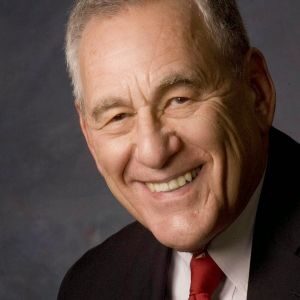This political year will be historic.
Unusually important events are sure to affect people’s lives across the country and impact Maine. Here’s a look at the highlights of the 2020 political calendar.
January. The U.S. Senate trial of President Trump will start, and could finish. The trial of a president will only be the third in American history, though there have been many other trials of lesser officials.
The way senators vote may affect their re-election chances, none more than Sen. Susan Collins. Trump, like the other two presidents, probably will not be removed from office, but, unlike the others, he would run for re-election after the trial. He would want the election to vindicate his actions, so the trial will have an unusual political impact.
March 3. This is “Super Tuesday,” when there will be presidential primaries in many states, including Maine. With so many states, including California, voting on the same day, the Democratic nominee might be selected. Participation in Maine should be far higher than caucus attendance has been. This could be a rare chance for the state’s voters to have a national impact. Ranked-choice voting will not be used.
April 15. This is slated to be the final day of the Maine legislative session. Adjournment could wrap up many legislative issues and mark the midpoint of Gov. Mills’ legislative program. Among the issues to be debated are health insurance, bond issues, customer control of Maine electric utilities, broadband availability and the environment.
June 9. On Maine Primary Day, voters will pick candidates for seats in the Legislature. But more attention will go to picking the Democratic candidate to face Republican Sen. Susan Collins and the GOP candidate to take on Rep. Jared Golden, the Democratic representative in the Second District. Ranked-choice vote. It is possible there could be challengers running against the incumbents in their own parties, though that now seems unlikely. This is the true kickoff of the 2020 election campaigns in Maine.
July 13. The Democratic National Convention opens with the main business being the selection of the party’s candidate to oppose Trump. This nomination should have been settled in advance through the primaries, but the race could remain open this late. There may also be a struggle between moderates and progressives over the party platform.
Summer season. State legislative sessions will end with a possible effort in some states to pass the National Popular Vote. States with only 74 more electoral votes are needed to decide that the presidential electors would pick the winner in line with the popular vote around the country. While this effort seems likely to succeed eventually, it would be a surprise this year.
August 24. The Republican National Convention, beginning on this date, is expected to be the coronation of Donald Trump. Unless the impeachment process wounds him, he should lead a highly unified party out of the gathering.
November 3. Election Day. Voters will choose the president and vice president, both Maine House members and one senator, plus the entire Maine Legislature. This election will be conducted using ranked-choice voting for federal races.
One key element of these votes will be the political fate of Sen. Collins and other GOP senators. Their re-election could ensure continued GOP control of the Senate and thus the ability to block a Democratic president or boost Trump policies. Republicans depend on Trump’s coattails, while Democrats depend on the turnout of women, young voters, minorities and the depth of opposition to Trump.
The other major impact will be on drawing state legislative and congressional district lines. The newly elected Legislature will have that job. The result could favor the majority party after this year’s elections for as long as the next ten years.
The composition of the Legislature will have much to do with Gov. Mills’ ability to see her policies enacted. If the Democrats lose control of either house, her influence will be more limited than it has been.
This date also marks the beginning of the transition period. If Trump is re-elected, he is likely to take almost no time in putting people in office who will loyally carry out his policies. He would not be constrained by concerns about being re-elected as he would be term-limited.
If a Democrat wins, the coming change will become immediately apparent by the people selected to take leadership positions. Names should start to come early as any Democrat will want to make changes immediately upon taking office.
If elections produce a federal government split between the two parties, political posturing and further stalemates loom as likely outcomes.
December 2. New Maine Legislature convenes. In the federal government, the new Congress will convene on January 4, 2021, and the presidential inauguration is January 20.
Bottom line. Maine voters will have as many as three opportunities to cast ballots in 2020, aside from municipal and school elections. Please vote.







